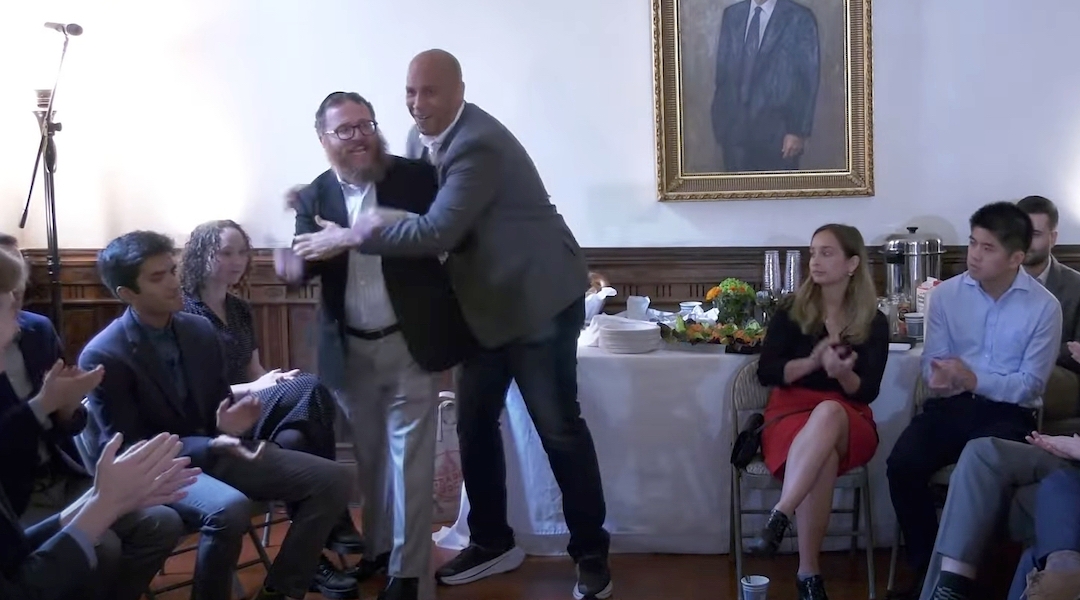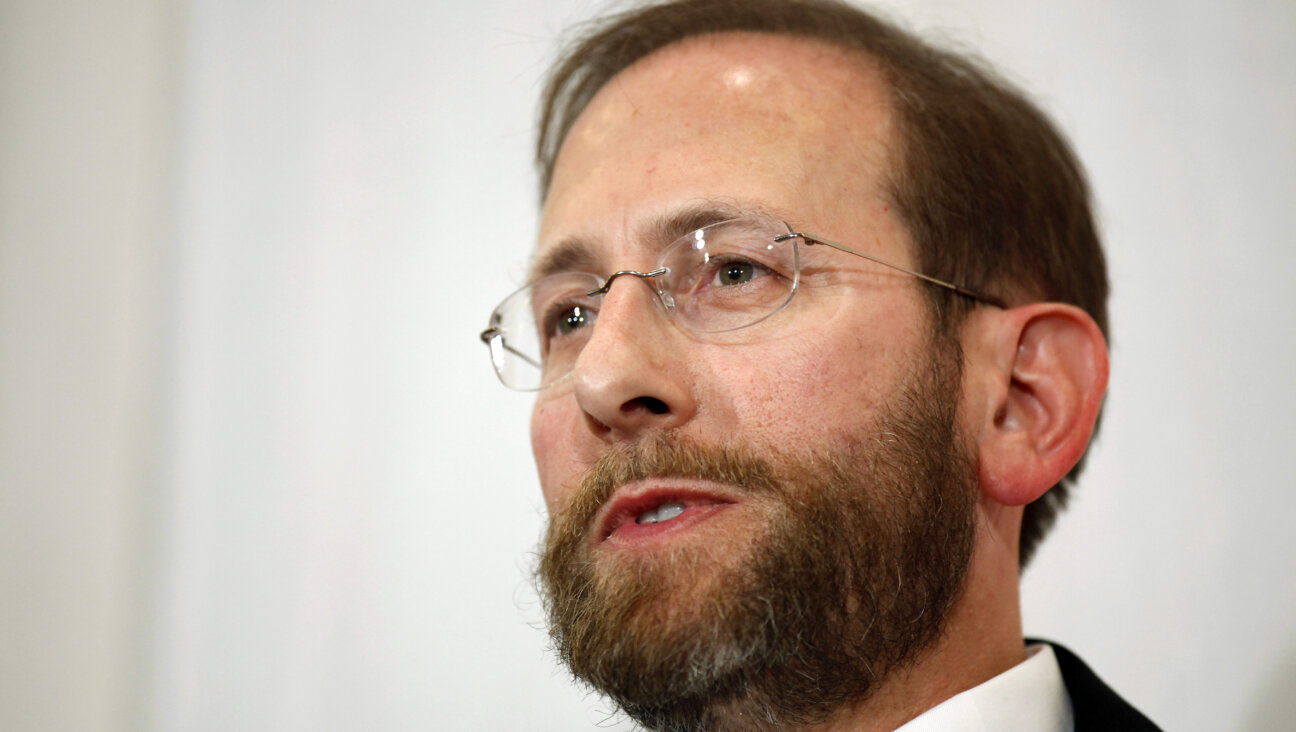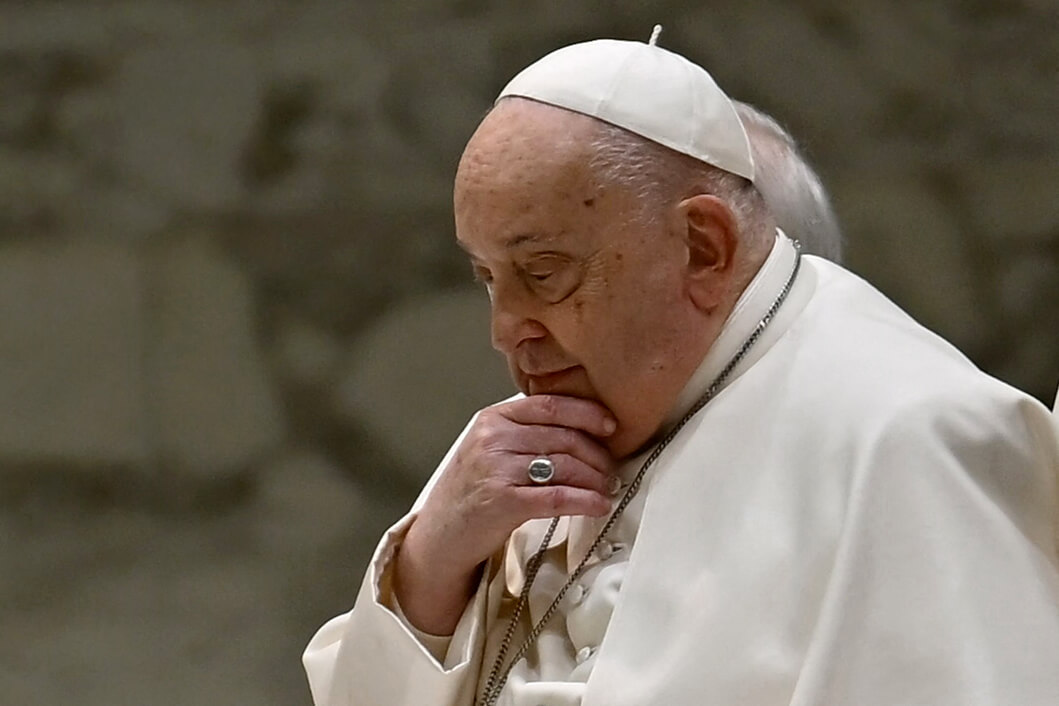Student alleges Florida State fostered racist, ‘hostile environment’ toward Palestinians

Florida State University became the site of controversy last summer. Photo by iStock/Getty Images
Just days after he was elected as Student Senate President at Florida State University last summer, Ahmad Daraldik’s past anti-Israel online posts began to circulate among groups of FSU students: a high school website that compared Israel’s actions toward Palestinians to the Holocaust, a Facebook post from when he was 12 years-old calling an Israeli Defense Forces soldier “stupid jew,” and an Instagram post captioned “#fucktheOccupation #fuckIsrael.”
Jewish students’ reaction on the virtual campus was swift, calling for Daraldik’s ouster and attacking him online. Now, in an unprecedented twist, Daraldik is fighting back. With the help of Palestine Legal, a Palestinian rights advocacy group, Daraldik has filed a federal complaint alleging a “hostile environment of anti-Palestinian racism that continues to fester” at FSU. The complaint marks the first time a university has been accused in court of anti-Palestinian discrimination — and mirrors a trend of Jewish students using the legal system to combat anti-Israel activity on campuses.
Ahmad Daraldik was elected as FSU’s student senate president last June, making him the first Palestinian-American to hold the post.
“A bunch of news came out about Ahmad’s past and it was pretty hard to hear about what he thought about Jewish people,” said Sam Freed, a Jewish sophomore at FSU. “I’m not from Israel, but Jews have a connection to Israel even if you’re not from there. It was just horrible to hear.”
Freed, along with nearly 11,000 people, signed and commented on a petition, calling for Daraldik to be removed from his new post at the helm of the student senate. Some of the comments, like Freed’s, focused on Jewish students’ feelings of personal offense at Daraldik’s past statements, but others crossed the line into insults and Islamophobia.
“It is unamerican at best… institutionalized shariah law at worst!” commented one Change.org user. “No tolerance for Islamic advocacy of murder!” wrote another. Multiple users called Daraldik a “piece of shit,” “despicable,” and called for his expulsion from the school.
Through direct social media channels, according to the complaint, Daraldik was called a “Dumb ass monkey ass piece of Arab shit,” “piece of fucking garbage terrorist,” a “dirty ass towelhead,” and told that not only should he be expelled, but also “deported to Gaza.”
A profile of Daraldik appeared on Canary Mission, the blacklist website that creates dossiers on Palestinian college activists.
Internal outrage and external pressure
By the end of June, Daraldik had issued a public apology. “I am simply and deeply sorry to all community members that were offended by the comments I made in ignorance as a 12-year-old and as a 15-year-old,” he wrote. “While I made my comments from the perspective of a Palestinian child who lived under military occupation I have since realized they were wrong and offensive.”
Daraldik, through his attorney, declined to be interviewed for this piece.
The apology came weeks after Daraldik made a Facebook video, in which he attempted to explain his past actions, in part by referring to his upbringing in the West Bank. In the video, Daraldik described being detained by the IDF at a checkpoint with his family for six hours earlier the same day as when he captured a photo of himself beside the Nelson Mandela statue in Ramallah — eventually posted with the caption, “#fucktheOccupation #fuckIsrael.”
“I was humiliated, I was dehumanized, I was upset,” Daraldik said in the Facebook video.
For many Jewish students on campus, the video only served to intensify their opposition to Daraldik. Noles for Israel, FSU’s Israel advocacy group, condemned it as a non-apology and took issue with the portions where he compared his experiences to those of Jews in Nazi Germany, echoing the high school project of his they had objected to before. (The alleged project is no longer available online, but a screenshot of it can be found in a letter the Anti-Defamation League sent to FSU administrators.)
Dan Leshem, the executive director at FSU’s Hillel, said in an email interview that Jewish students in his community feared Daraldik “would not represent their needs and interests effectively.”
“They were very worried about how he would try to change the campus climate to make Jews less comfortable expressing their Jewish identity and their range of perspectives on Israel,” he said.
Many of the Change.org commenters argued not removing Daraldik created an antisemitic “double standard.” The previous student senate president had been removed following comments he made that students considered anti-LGBT and anti-Black Lives Matter. Now, with Daraldik maintaining his post despite allegations of antisemitism, “FSU tolerates bigotry against Jews and rejects bigotry against everyone else,” one user opined.
External groups like the ADL and StandWithUs, a pro-Israel advocacy group, continued to issue condemnations of Daraldik’s statements and call on university administrators to intervene to remove him from student government. StopAntisemitism.org called for his expulsion. Local state legislators got involved: State Representative Chip LaMarca implied on Twitter that the governor could withhold funding to FSU if the college didn’t take action against Daraldik, and State Representative Mike Caruso wrote directly to the FSU student senate calling for impeachment proceedings to begin.
Amid the furor, President John Thrasher, the head of FSU, issued a statement condemning the “FSU Student Senate President who has posted offensive anti-Semitic rhetoric online,” and assured students that “antisemitism has no place” on his campus.
According to the complaint, Thrasher met with Daraldik around this time, telling him that while he won’t face expulsion, the president finds himself under “enormous public pressure” to sanction him.
Despite mounting petition signatures, the no-confidence vote failed and students ruled Daraldik could keep his post. But by November, he had been removed following an altercation with another student government official in which Daraldik said he didn’t appreciate threats from the student. The student supreme court found this statement constituted “false charges” against a fellow official and revoked Daraldik’s status as senate president.
Daraldik’s complaint argues that FSU abandoned him amid a barrage of anti-Palestinian online hate that was given FSU’s “official stamp of approval” — through Thrasher’s message to the community, private communication between administrators and Daraldik, and formal adoption of the International Holocaust Remembrance Alliance’s working definition of antisemitism in the midst of the debacle.
In July, the student senate voted to pass the controversial IHRA definition — including its examples of Israel-related speech that can be anti-Jewish — and in August, Thrasher released a statement pledging to abide by it.
“Passing the IHRA definition basically allowed for almost everything Ahmad was saying on his social media to be considered antisemitism,” said one student involved with FSU’s Hillel and Noles for Israel in an interview. (The student refused to allow their name to be published expressing fear of reprisal on campus.)
Roz Rothstein, the chief executive officer of StandWithUs, a pro-Israel advocacy group, said that “neither identifying and condemning antisemitic content, nor adopting the international IHRA definition of antisemitism, poses harm to Palestinian or any other group.”
In his complaint, Daraldik alleges the opposite: The very act of endorsing the definition left him silenced. “It incorrectly and dangerously conflates legitimate criticism of the Israeli government with antisemitism,” the complaint reads.
The online harassment of the summer, the complaint claims, took a significant toll on Daraldik’s mental and physical health, as well as on his ability to remain focused on his studies. Prior to turning to Palestine Legal, the group behind the federal complaint, Daraldik filed two internal complaints at FSU, neither of which he believes has been adequately addressed.
Thrasher did not respond to a request for comment, and FSU spokesperson Amy Farnum Patronis did not provide context to any of the allegations in the complaint, saying only that FSU has “not received nor seen the complaint.”
“Florida State University does not tolerate discrimination against any groups or individuals,” Patronis added in a general statement. “Florida State has always aspired to be as inclusive as possible and values diversity as greatly contributing to the richness of our academic enterprise.”
Adopting Title VI as a tool
The complaint alleges FSU has violated Title VI, the provision under the Civil Rights Act of 1964 that prohibits discrimination on the basis of race under any program receiving federal funds. In recent years, Jewish and pro-Israel students have often used Title VI to litigate claims of antisemitic bias on college campuses.
Last October, New York University settled a suit brought by Adela Cojab, a former student, that centered around the university’s handling of the activities of Students for Justice in Palestine and alleged, mirroring the language in Daraldik’s complaint, that NYU had failed to prevent a “hostile environment” for Jews on campus.
StandWithUs, which publicly supported Cojab and condemned Daraldik, now told the Forward it’s skeptical about Palestine Legal’s intentions in filing the Title VI complaint. (Cojab and the Louis D. Brandeis Center that represented her did not respond to interview requests for this story.)
“We hope that Daraldik’s complaint is not an attempt to pervert the intent of Title VI or dilute its efficacy in protecting students against antisemitic environments,” Rothstein, the group’s director, said. Rothstein said that while the group “strongly condemns” anti-Arab bigotry directed at Daraldik over social media, experiencing “such hate does not give anyone a free pass to promote or justify antisemitism.”
But in the view of Todd Gitlin, a Jewish sociology professor at Columbia and a historian of leftist youth movements, the Title VI complaint seemed like a rational reaction to actions by the university that, on their face, appeared to be “discriminatory.”
“It’s kind of flabbergasting how childish and unjustified it is,” he said of FSU’s treatment of Daraldik, reacting to how it was originally reported in 972 Magazine. “Nobody going to a university should be forced to sign a loyalty oath to any nation in the world, whether it’s Israel, or Palestine, or China, or anywhere else.”
To Morriah Kaplan, a spokesperson for IfNotNow, a Jewish anti-Israeli occupation advocacy group, Palestine Legal’s complaint represents a positive shift from how Title VI has been applied in recent memory.
“I’m glad to see the law, Title VI of the Civil Rights Act, being used as it was intended,” Kaplan said in an interview, “to protect students from harassment on campus, and not to protect students from other students who want to hold Israel accountable for their human rights violations.”
A possible turning point in Israel-Palestine campus discourse
David Myers, a professor of Jewish history at UCLA who teaches on Israel-Palestine, described the FSU case as only the latest iteration of the ongoing “proxy war” happening across colleges between pro-Israel and pro-Palestinian organizations outside campuses.
“To me it seems like we’ve made an error in thinking that statements that are perhaps hurtful or offensive — like ‘fuck Israel’ — are antisemitic,” said Myers, who also serves as president of the New Israel Fund. “We’ve lost the ability to distinguish between statements that are offensive or hurtful for some, and statements that are based in the belief in the inferiority or lack of worth of another group.”
Myers explained that for Palestinian students “to arrive at the conclusion that Israel is a racist state is not an assertion of their antisemitism,” but rather “an assertion of fact” that may be based on their or their family members’ lived experience under Israeli occupation.
“What’s new to the game is this attempt to define what antisemitism is,” he said, “and then to add to it some punitive power, and I think the effects of the latter can be and have been very destructive.”
What now?
In January, Daraldik introduced resolutions to the senate to repeal the IHRA definition, increase Muslim and Arab representation in student government, and most notably for pro-Israel students, to call on the university to boycott, divest, and sanction companies engaged in “maintaining the infrastructure of the Israeli occupation” and working with “Israeli security forces.”
To Daraldik, the resolutions were an attempt to “reclaim his identity,” the federal complaint claimed. But for pro-Israel students, the actions confirmed their worst fears about Daraldik in student government.
None of the resolutions have passed, and according to the complaint, students jeered Daraldik at the senate meeting, with one student saying, in reference to the resolution, the senate should “kill the beast before it multiplies.”
For Myers, the UCLA historian, assessing individual examples of alleged antisemitism can be complicated. Comparing Israel to Nazi Germany, for instance, he said is a problematic claim. More than some of the other IHRA examples, he said, it “can be antisemitic.” But it can also be “careless and not at all intentionally antisemitic.” The analogy, more than anything, speaks to “a lack of historical nuance and sensitivity.”
But should students be sanctioned for it, and for statements like it?
“We’ve added a kind of legal mechanism to the very coarse definitional apparatus we have,” Myers said. “I think that’s where the danger lies.”
The Forward is free to read, but it isn’t free to produce

I hope you appreciated this article. Before you go, I’d like to ask you to please support the Forward.
Now more than ever, American Jews need independent news they can trust, with reporting driven by truth, not ideology. We serve you, not any ideological agenda.
At a time when other newsrooms are closing or cutting back, the Forward has removed its paywall and invested additional resources to report on the ground from Israel and around the U.S. on the impact of the war, rising antisemitism and polarized discourse.
This is a great time to support independent Jewish journalism you rely on. Make a gift today!
— Rachel Fishman Feddersen, Publisher and CEO
Support our mission to tell the Jewish story fully and fairly.
Most Popular
- 1

Opinion The dangerous Nazi legend behind Trump’s ruthless grab for power
- 2

Opinion A Holocaust perpetrator was just celebrated on US soil. I think I know why no one objected.
- 3

Culture Did this Jewish literary titan have the right idea about Harry Potter and J.K. Rowling after all?
- 4

Opinion I first met Netanyahu in 1988. Here’s how he became the most destructive leader in Israel’s history.
In Case You Missed It
-
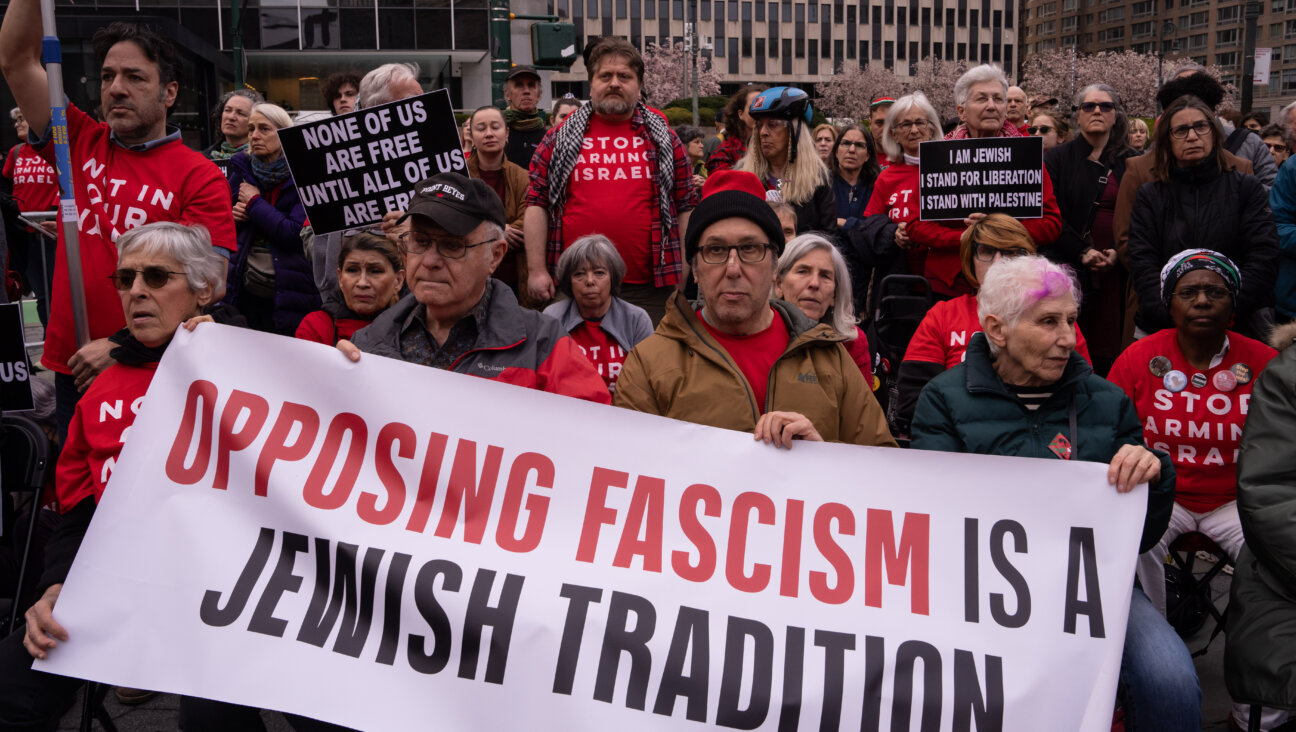
Opinion Gaza and Trump have left the Jewish community at war with itself — and me with a bad case of alienation
-
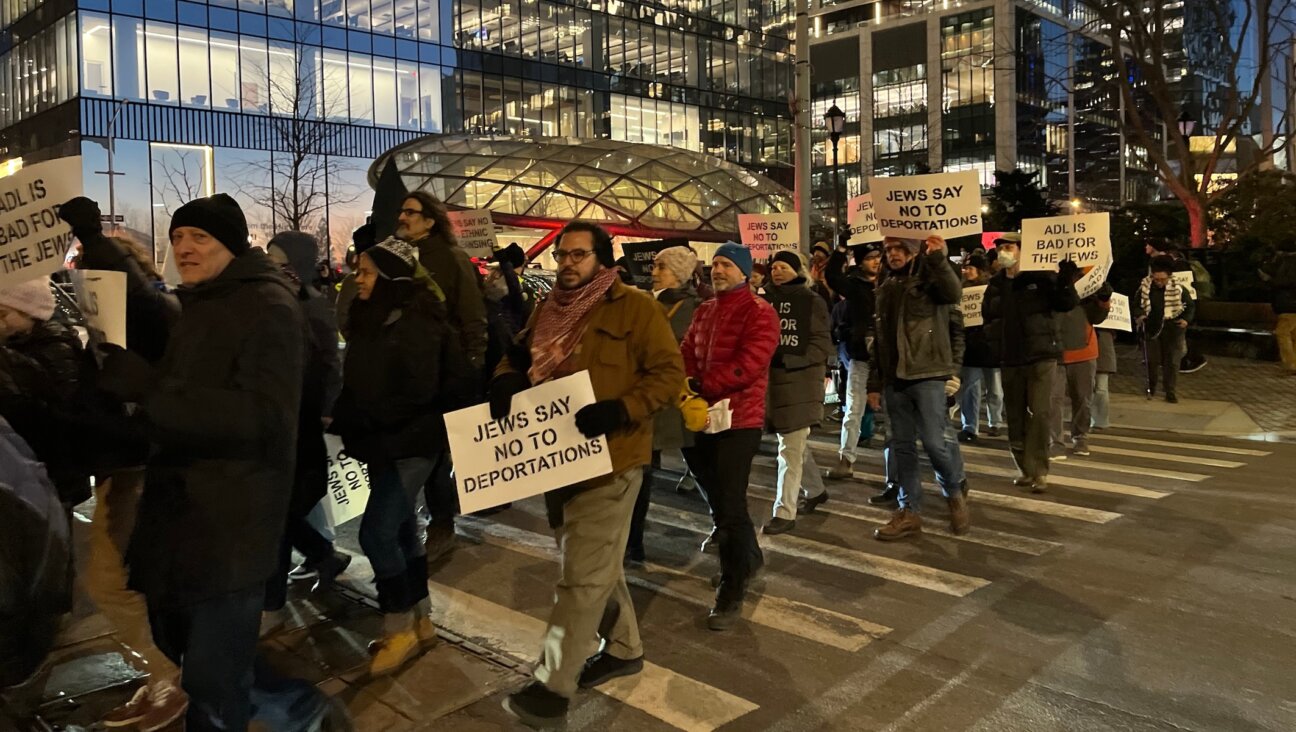
Fast Forward Trump administration restores student visas, but impact on pro-Palestinian protesters is unclear
-
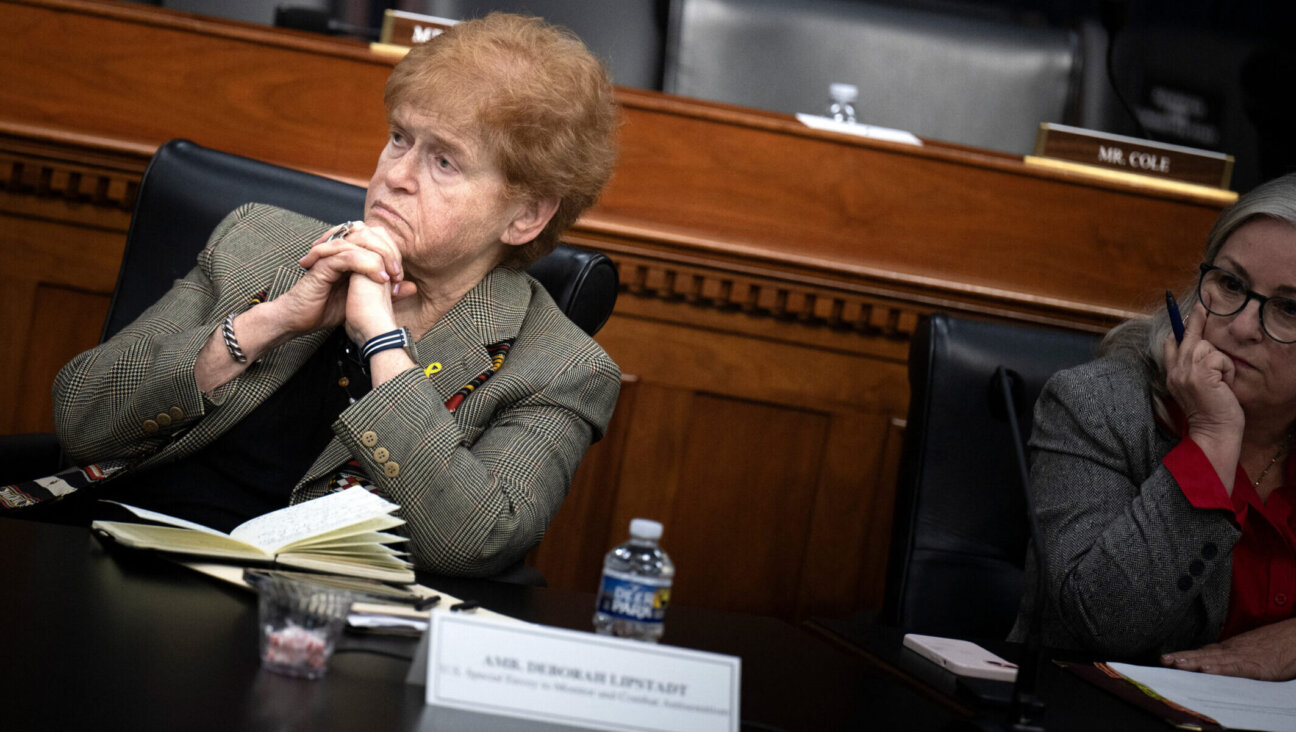
Fast Forward Deborah Lipstadt says Trump’s campus antisemitism crackdown has ‘gone way too far’
-

Fast Forward 5 Jewish senators accuse Trump of using antisemitism as ‘guise’ to attack universities
-
Shop the Forward Store
100% of profits support our journalism
Republish This Story
Please read before republishing
We’re happy to make this story available to republish for free, unless it originated with JTA, Haaretz or another publication (as indicated on the article) and as long as you follow our guidelines.
You must comply with the following:
- Credit the Forward
- Retain our pixel
- Preserve our canonical link in Google search
- Add a noindex tag in Google search
See our full guidelines for more information, and this guide for detail about canonical URLs.
To republish, copy the HTML by clicking on the yellow button to the right; it includes our tracking pixel, all paragraph styles and hyperlinks, the author byline and credit to the Forward. It does not include images; to avoid copyright violations, you must add them manually, following our guidelines. Please email us at [email protected], subject line “republish,” with any questions or to let us know what stories you’re picking up.








